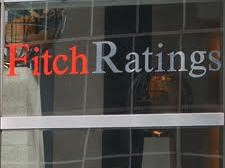ARMENPRESS, 29 JUNE, ARMENPRES. Fitch Ratings says in its newly-published global Sovereign Review and Outlook that the eurozone sovereign debt crisis is affecting the outlook for emerging Europe (EME) to a greater degree than other emerging markets, reflecting the region's close trade, investment and financial linkages with the eurozone. Nonetheless, on the whole, the agency considers that the region is much better placed than it was in 2008-09 to withstand external shocks.
"With the exception of Hungary, emerging Europe, including Russia and Turkey, has escaped any sovereign downgrades so far in 2012. However, in the face of the deteriorating outlook for the eurozone, rating outlooks for emerging Europe have largely reverted to Stable from Positive," says Paul Rawkins, Senior Director in Fitch's Sovereign Rating team. Kazakhstan ('BBB'/Positive) is the only EME sovereign on Positive Outlook, while Hungary ('BB+') and Croatia ('BBB-' ) are on Negative Outlook.
Fitch says EME is facing a sharp slowdown in growth to 2.7% in 2012 from 4.7% in 2011, steeper than emerging Asia, Latin America or the Middle East and Africa. Moreover, broad aggregation of the region's growth statistics obscures more divergent trends among Central and Eastern Europe (CEE), the Baltics and the Commonwealth of Independent States (CIS). The CIS and the Baltics continued to post relatively robust growth in Q112, whereas a number of CEE economies registered a decline in output.
Adverse developments in the eurozone are being felt primarily through the trade channel - 50% of CEE's exports go to the eurozone - with Bulgaria, for example, suffering a 5% drop in exports to the region in Q112. For the CIS, these pressures are being transmitted largely through declining oil and other commodity prices. A much sharper than expected drop in oil prices would pose a downside risk to CIS commodity exporters and other countries which depend heavily on Russia for exports and/or remittances, including the Baltics and Armenia.
Fitch believes that financial sector linkages to the eurozone have the potential to inflict greater damage in a downside scenario. Eurozone bank claims on emerging Europe dwarf their claims on other regions, while eurozone banks own large stakes in CEE banking systems. While there has been an unwinding of international banks' exposure to EME since H211, Fitch has detected no evidence of significant parent bank retrenchment. However, high Greek parent bank ownership of local bank assets in Bulgaria (25%), Macedonia (25%), Serbia (16%) and Romania (13%) represents a risk in the event of extreme events in Greece, such an exit from the eurozone and bank deposit runs.
At an aggregate level, EME has made significant progress with fiscal consolidation, reducing fiscal deficits to near balance in 2011 (helped by high oil prices for Russia) from over 6% of GDP in 2009. Public debt remains low at 29% of GDP. However, Fitch forecasts a modest reversal in 2012, while fiscal vulnerabilities vary across the region. Many countries rely primarily on external funding for budget deficits, leaving them more exposed to global financial instability. Those countries with weak public finances and uncomfortable relations with the IMF (Hungary, Serbia and Ukraine) have been conspicuous by their absence from international bond markets.
Externally, EME is set to move from a near balanced current account position in 2011 to an aggregate deficit of USD30bn in 2012, still less than 1% of regional GDP and well below its peak of USD80bn in 2007. Much of the deterioration in 2012 is explained by diminution of the oil-driven surpluses of Russia and Kazakhstan, rather than a widening of existing deficits elsewhere. However, Turkey remains a stand out: although the country appears to be close to attaining a soft landing, its current account deficit will remain high at USD61bn (7.7% of GDP) in 2012, much of it financed by short-term debt and portfolio inflows, leaving it vulnerable to more acute volatility in the eurozone.
 14:04, 29 June 2012
14:04, 29 June 2012



















